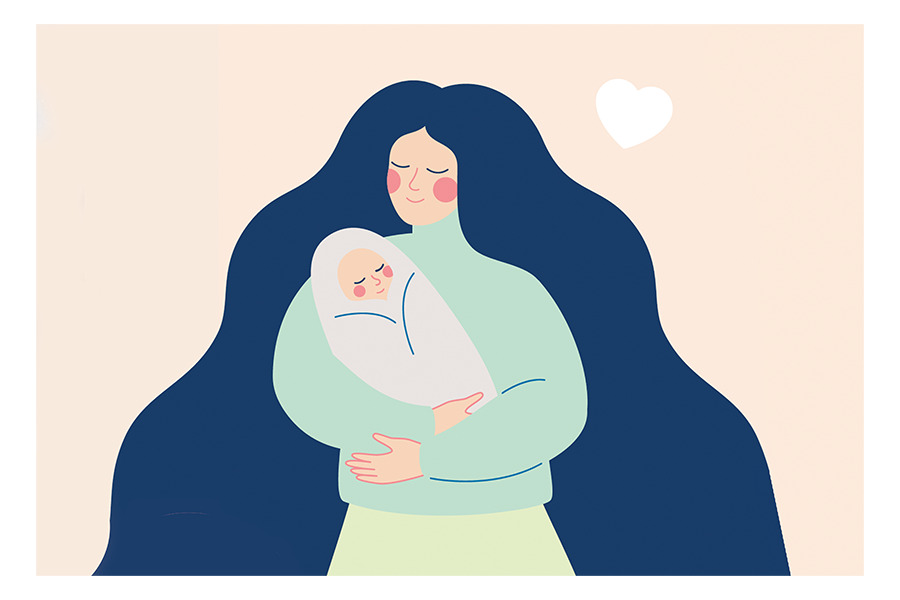Research has shown that women in the UK consistently receive poorer healthcare than men, we look at the reasons why, and explore the private healthcare options that are available exclusively to women.
Health gaps are differences in the prevalence of disease, health outcomes, or access to healthcare across different groups. In many countries across the world, men are likely to face greater health risks, says research by Manual, a wellbeing platform for men, but the UK bucks this trend. Here, they reveal, we have the largest female health gap in the G20 and the 12th largest globally.
One explanation for the female health gap is that women are traditionally underrepresented in clinical trials. In research by University of California, Berkeley, published in the journal Biology of Sex Differences, author Professor Irving Zucker explains that this is because, “for decades, women were excluded from clinical drug trials based, in part, on unfounded concerns that female hormone fluctuations render women difficult to study.” The thalidomide scandal also resulted in women of childbearing age being prevented from participating in trials due to liability concerns about exposing unborn babies to drugs that may be harmful to their development – this decision was only reversed in the mid 1990s.
This all matters because sex-based differences influence all tissues, organs, and bodily functions. These differences account for the fact that men and women react differently to certain health conditions, and do not respond in the same way to some drugs. For example, endocrinologist Dr Paul Jenkins, founder of Echelon Health, the world’s leading provider of bespoke preventative health assessments, tells us: “Women’s symptoms of cardiovascular disease are often milder; they can arise later in the illness, and they can be unusual. Women may experience a heart attack with no symptoms of chest pain. They may experience nausea or vomiting, which are often confused with acid reflux or the flu. Because heart disease in women often goes undetected, the damage caused can be more advanced and outcomes can be poorer than for men.”
It is ironic that the reasons that women have been excluded from studies in the past are the very same reasons that they have different, often more complicated healthcare needs than those of men, in particular when it comes to reproduction, gynaecology and menopause. It’s no surprise, then, especially when considering how overstretched our National Health Service is, that more and more are choosing private providers when it comes to these aspects of their healthcare.
Private maternity care is one such example. As well as providing a more comfortable, less clinical-feeling birthing experience, private maternity care can ensure a continuity of care that is understandably not available through the NHS, guaranteeing that expectant parents see the same obstetrician and midwife throughout their pregnancy. One such provider is the Kensington Wing, a private maternity unit within the Chelsea and Westminster Hospital. The facility offers consultant-led and midwife-led care, as well as antenatal classes, scanning services, neonatal baby checks and a community postnatal package. And because it is attached to one of the safest hospitals in London, emergency support is available in the event it is required. Lucy Coe, matron here, explains that for many, the appeal lies in being able to access a more bespoke care package, providing a higher level of personal reassurance. “At the Kensington Wing we have the ability to adapt our packages of care around the needs of our patients. For some this may be reflected in additional antenatal appointments to provide more reassurance, or a longer stay with us on our postnatal ward after your birth,” she explains. “For others this may come in the form of additional screening, from ultrasound scans with our foetal medicine consultants to the NIPT (Harmony test) with our specialist screening midwife. Every mother will be contacted after baby is born by our physiotherapist, setting them up for a faster and easier recovery. Babies are seen by one of our expert consultant neonatologists to ensure the newborn assessment is completed by the most qualified professional possible.”
Other exclusive services offered by the Kensington Wing include an overnight nursery service to facilitate a more restful night’s sleep in the early days, and a package of home midwife visits to fully support the transition to parenthood. And, as with most private providers, there are various levels of care available. While many receive all aspects of their maternity care under the team at the Kensington Wing, some parents may choose to have their antenatal care under the Chelsea and Westminster NHS team, and give birth at the hospital, but transfer to the Kensington Wing after the birth as an amenity patient, allowing them to take advantage of the luxurious accommodation and catering facilities there while they recuperate from the birth.

The postnatal period presents its own challenges, and one area of care during this time that is particularly badly represented on the NHS is that of Breastfeeding Medicine. It is often the case that new mothers are discharged from hospital without having successfully established breastfeeding. Dr Sharon Silberstein tells us that: “the speciality is new to the UK, and because it is not yet known or recognised, there are currently very few doctors specialising in this field.” A specialist in gynaecology and obstetrics, it was only when she herself had children that she realised how little support was available for mothers who were struggling to breastfeed.
“Midwives on the postnatal wards are often too busy to offer sufficient support,” she tells us. “Many mums are not prepared well for breastfeeding difficulties after birth; it comes as a shock that breastfeeding is not easy and often needs skilled support. I believe that early intervention is key and reaching out to the right support can change the whole journey.”
It was this belief that led her to seek specialist qualifications as an International Board Certified Lactation Consultant and tongue-tie practitioner. She has now set up a clinic in north London offering specialist infant feeding support and tongue-tie divisions, alongside speech and language therapy, baby massage courses, paediatric first aid courses and osteopathy, from a range of expert practitioners. “At the Dr Silberstein Clinic in Hampstead Garden Suburb I have a wide range of patients, with babies from newborn to toddlers. I specialise in the diagnosis and treatment of tongue-ties. I support women with mastitis, infections, low supply, over supply, Vasospasm and other conditions. I help women induce lactation if they are expecting a baby via surrogacy or adoption, or in same sex couples who want to share breastfeeding. I also support babies who struggle with bottle feeding.”

The end of a woman’s reproductive period presents its own set of problems. Women spend more than a third of their lives in peri- or post-menopause, with most reporting that the symptoms interfere with their lives on a day-to-day basis. Though the need for better recognition of the issues women face around menopause has been widely discussed in the media, work is still required to properly address these issues. Alongside this, and often not spoken about, is the fact that menopause is characterised by a reduction in circulating oestrogen levels and that this, together with general ageing, makes women more susceptible to disease, including cardiovascular disease (CVD) and osteoporosis. It is something about which Dr Paul Jenkins of Echelon Health is passionate. “Women often think breast cancer is their biggest threat after the menopause, but the most significant danger they face is actually CVD,” he tells us. “Nearly a third of women develop cardiovascular disease and the rate of heart attacks in women begins increasing roughly a decade after menopause. A key reason is that oestrogen helps keep blood vessels flexible, so they contract and expand to accommodate blood flow. Once oestrogen diminishes, this benefit is lost. Coupled with other changes, such as the rise in blood pressure that can thicken artery walls, women’s hearts suddenly become vulnerable. Studies have indicated that those women who have frequent and persistent hot flashes earlier during menopause also seem to have a higher risk for heart disease.”
Because of these concerns, Echelon Health recently unveiled their new Cullinan Assessment, a comprehensive health check designed specifically for women who are navigating perimenopause and menopause. “The Cullinan Assessment is designed to detect those diseases which women in their mid-life are more at risk of,” Paul tells us. “This includes the earliest signs of cardiac disease and osteoporosis. In addition, it screens for female specific cancers such as breast, ovarian and uterine. It also looks for early lung cancer given the dramatic increasing prevalence of this amongst women, even those who are non-smokers. It does this through a combination of detailed imaging of the body utilising a range of the most advanced imaging equipment (CT scanner, ultrasound and digital mammography) combined with very comprehensive blood tests.” The ultimate MOT, through use of the most accurate technology on the market, the assessment leaves no stone unturned. The process takes four hours and is followed by a consultation during which the results are analysed, and a bespoke lifestyle plan is presented that will help clients reach optimum health.
When it comes to our health, we should demand nothing but the best, and living in London, we are well placed to access just this.
(thekensingtonwing.co.uk; drsilbersteinclinic.co.uk; echelon.health)